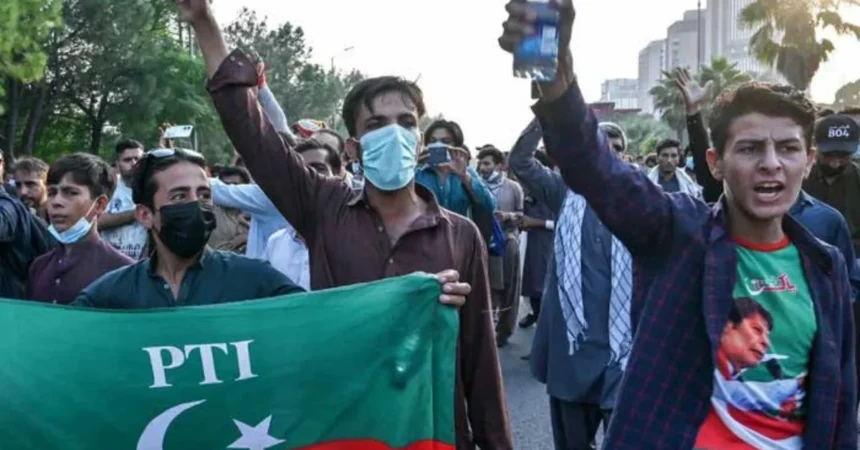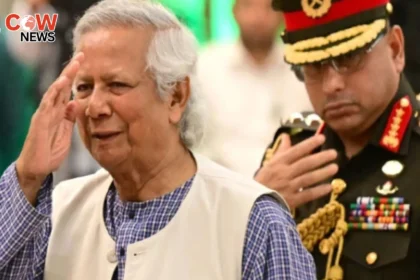The Pakistan Tehreek-e-Insaf (PTI) has announced a series of nationwide protests aimed at expressing its opposition to the proposed 26th constitutional amendment. PTI believes that the amendment undermines the democratic process and is an attempt by the current government to consolidate power. These protests are seen as a critical move by PTI to galvanize its supporters and to voice its concerns regarding the government’s policies.
PTI is calling on its supporters to join demonstrations in key cities across Pakistan, including Lahore, Karachi, Islamabad, and Peshawar. The party leadership has emphasized that these protests will be peaceful but forceful in conveying the public’s dissatisfaction with the government’s actions. PTI aims to show the strength of public opinion against the constitutional changes.
The nationwide protests are not only a reaction to the legal amendments but also a broader response to what PTI views as ongoing repression of democratic rights in Pakistan. Party officials have stated that they will continue these protests until their demands are heard and the government revisits its position on the constitutional amendment. PTI sees this as a critical juncture for Pakistan’s political future.
The protests are expected to draw large crowds, as PTI has a significant support base throughout the country. The party’s grassroots network has been mobilized to ensure that the protests are well-coordinated and impactful. PTI’s message is clear: they will not stand by while the government pushes through reforms that they believe harm Pakistan’s democratic institutions.
Opposition to the 26th Constitutional Amendment
The proposed 26th constitutional amendment has become a lightning rod for opposition parties, particularly PTI. The amendment seeks to make significant changes to the legal and constitutional framework, but PTI has voiced concerns that these changes are politically motivated and aim to weaken democratic institutions. The party’s leadership has been vocal about its belief that the amendment is designed to consolidate the ruling party’s power.
According to PTI, the amendment undermines the judiciary’s independence, making it easier for the government to influence judicial decisions. This has raised concerns among PTI members that the amendment is part of a broader strategy to limit checks and balances on the executive branch. PTI fears that the ruling party will be able to manipulate legal outcomes in its favor, further eroding democratic accountability.
The party has also criticized the way the amendment is being introduced, stating that there has been insufficient consultation with opposition parties and civil society. PTI believes that such an important constitutional change should be subject to rigorous debate and public scrutiny, rather than being pushed through quickly. They argue that the process lacks transparency and is an affront to the democratic process.
In addition to its concerns about the judiciary, PTI has raised alarms about the potential for the amendment to limit freedom of speech and political opposition. PTI leaders argue that by centralizing power, the government is seeking to silence dissent and curtail democratic rights. The party is rallying its supporters to oppose these changes and to protect the integrity of Pakistan’s democratic system.
Protest After Friday Prayers
PTI has planned its nationwide protests to take place after Friday prayers, capitalizing on the large gatherings of people at mosques across the country. This timing is significant because it allows the PTI to engage with a broad segment of the population at a moment when many are already gathered for religious reasons. The party hopes to channel the energy of these gatherings into political action against the government’s policies.
PTI leaders have instructed their supporters to assemble at key locations after Friday prayers, where the protests will begin. These protests are expected to be well-organized, with speeches from PTI leaders, banners, and slogans expressing opposition to the 26th constitutional amendment. The party’s leadership will be at the forefront of these protests, ensuring that the message remains focused and unified.
Friday has traditionally been a day of political mobilization in Pakistan, with many political parties choosing to hold rallies and protests after prayers. PTI’s decision to organize protests on this day is strategic, as it maximizes the potential for public participation. The party is hoping that the protests will attract large crowds and send a clear message to the government that the people do not support the constitutional amendment.
The protests are expected to be widespread, with demonstrations taking place in cities and towns across the country. PTI is using its organizational network to ensure that protests are coordinated and that their message is consistent across all locations. The party hopes that this show of strength will pressure the government to reconsider the constitutional amendment and open up a dialogue with opposition parties.
Imran Khan’s Imprisonment Criticized
A central theme of the protests is the imprisonment of PTI leader Imran Khan, who has been held in Adiala Jail since his arrest earlier this year. PTI views his imprisonment as politically motivated, designed to weaken the opposition and remove a key political figure from the national stage. The party has repeatedly called for his release, describing his imprisonment as unjust and undemocratic.
Imran Khan’s imprisonment has become a rallying point for PTI supporters, many of whom see it as emblematic of the government’s broader efforts to suppress political dissent. PTI leaders have used the protests to draw attention to the conditions of Khan’s imprisonment, alleging that he is being held in poor conditions as part of a campaign to intimidate him and his supporters. The party has called for international attention to be brought to his case.
In addition to calling for Khan’s release, PTI has used the protests to highlight what they see as the government’s broader abuse of power. They argue that the current administration is using the legal system to target political opponents, suppress freedom of speech, and undermine democratic rights. PTI leaders have vowed to continue protesting until Khan is released and the government addresses their concerns.
Imran Khan’s imprisonment has energized PTI’s base, with many supporters viewing his incarceration as a personal attack on their political movement. The protests have become a platform for PTI to voice its frustration with the government’s handling of Khan’s case and to demand justice for their leader. The party believes that Khan’s imprisonment is part of a broader pattern of political persecution that must be resisted.
Imran Khan’s imprisonment has galvanized both local and international attention, with PTI framing his arrest as a test of Pakistan’s democratic resilience. The party has emphasized that the former prime minister’s incarceration is not merely a political issue but a violation of human rights, pointing to alleged mistreatment in Adiala Jail.
Additionally, PTI has highlighted Khan’s imprisonment as part of a broader strategy to marginalize opposition voices, casting it as a tactic to weaken Pakistan’s democratic institutions. They’ve called for international human rights organizations to investigate Khan’s case.
The protests surrounding Khan’s imprisonment have deepened the political divide in Pakistan, reinforcing PTI’s narrative that the current government is moving towards authoritarianism. Many political analysts believe these protests could signal prolonged political unrest in the country, as PTI supporters remain firm in their demands for justice and political accountability for the government’s actions.
#PTIProtests #ImranKhan #ConstitutionalAmendment #PakistaniPolitics #PoliticalProtests #JudicialReforms #Democracy







